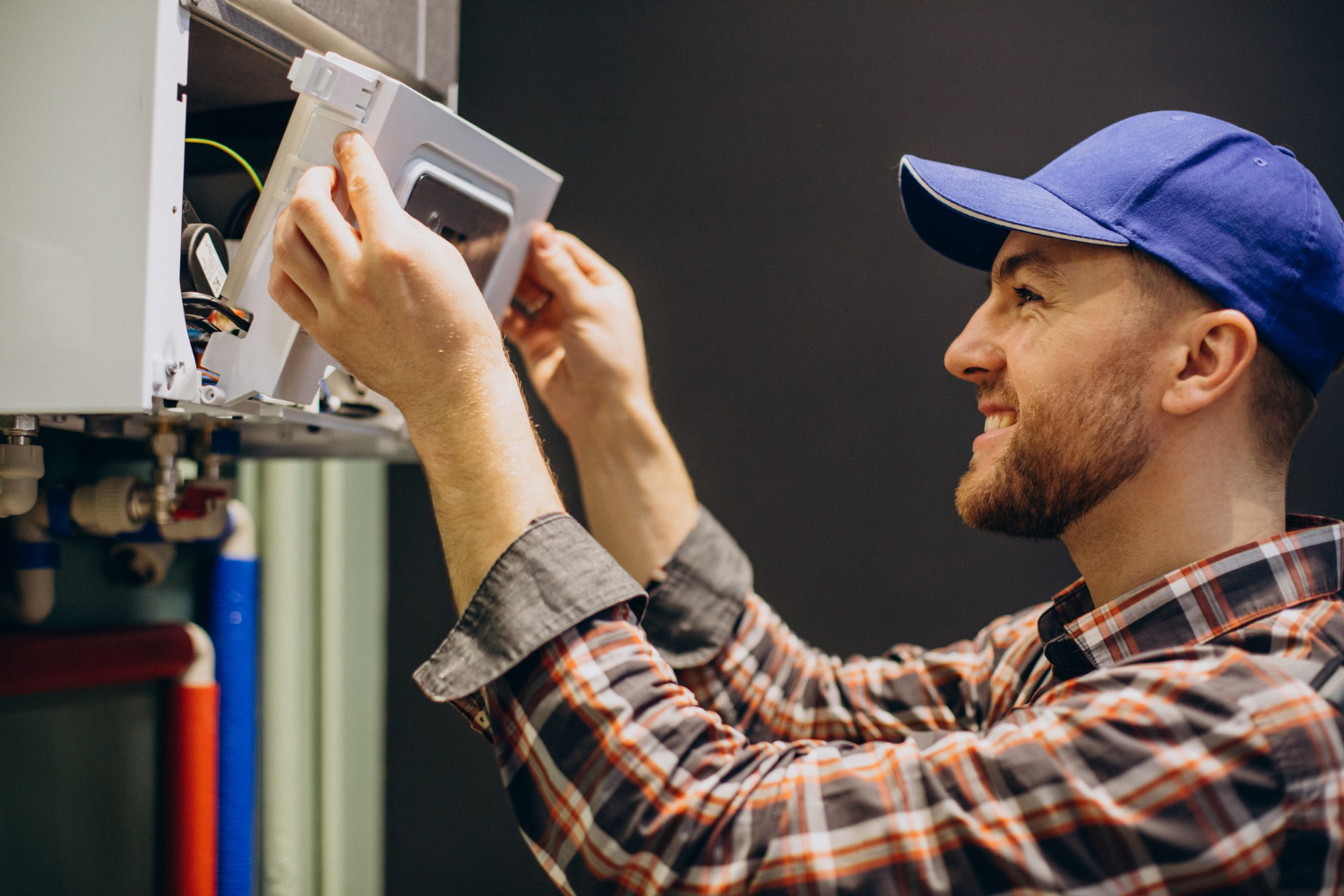Having a reliable water heater is essential for a comfortable home. Over time, however, even the best water heaters can begin to show signs of wear and tear. Knowing when to replace your water heater can save you from inconvenience and unexpected breakdowns.
Whether you have a traditional tank system, a tankless water heater, or even a boiler, recognizing the early warning signs of failure is crucial.
Signs Your Water Heater May Need Replacement
Age of the Water Heater
The age of your water heater is a significant indicator of when to consider a replacement. Traditional water heaters typically last about 10 to 15 years, while tankless water heaters can last up to 20 years with proper maintenance. If your water heater is approaching or has surpassed its expected lifespan, it may be time to consider a new one. An older unit is more likely to have reduced efficiency and increased risk of breakdowns, making replacement a more cost-effective and reliable solution.
Inconsistent Water Temperature
Experiencing inconsistent water temperatures is another sign that your water heater may need to be replaced. If you notice that your hot water fluctuates from hot to cold rapidly or doesn’t stay hot for long, this could indicate a failing heating element or other internal issues. These problems can become more frequent and severe as the water heater ages. Upgrading to a new unit can provide you with a consistent and reliable hot water supply.
Frequent Repairs
Frequent repairs are a clear sign that your water heater is on its last legs. While occasional repairs are to be expected, regular issues that require professional water heater repair point to an aging unit that may need replacement. Constantly spending money on repairs can add up quickly and often surpass the cost of a new water heater. Replacing an old, unreliable unit with a new one can save you money and hassle in the long run.
Strange Noises
Strange noises coming from your water heater, such as popping, banging, or rumbling, are usually signs of sediment buildup or other internal problems. Over time, sediment can accumulate at the bottom of the tank, causing it to overheat and produce unusual sounds. This not only affects the efficiency of the water heater but also shortens its lifespan. If you hear strange noises, it may be an indication that it’s time to consider water heater replacement to avoid further issues.
Assessing Different Types of Water Heaters
Tankless vs. Traditional Water Heaters
Traditional water heaters store a large amount of hot water in a tank, providing a ready supply of hot water. However, they can take up significant space and are generally less energy-efficient. Tankless water heaters, on the other hand, heat water on demand. They are more energy-efficient, provide endless hot water, and take up less space, making them an excellent option for modern homes.
Energy Efficiency and Cost Considerations
Energy efficiency is a crucial factor when choosing a new water heater. Tankless water heaters typically offer higher energy efficiency compared to traditional models. This efficiency can lead to substantial cost savings on your energy bills over time. While tankless units may have a higher upfront cost, the long-term savings and benefits often make them a worthwhile investment.
Lifespan and Maintenance Requirements
The lifespan and maintenance requirements of different water heaters also play a significant role in the decision-making process. Traditional water heaters generally last around 10-15 years and may require more frequent maintenance due to sediment buildup and other issues. Tankless water heaters have a longer lifespan, often up to 20 years, and typically require less maintenance. They are less prone to issues like rust and sediment buildup.
The Benefits of Upgrading to a New Water Heater
Improved Energy Efficiency
Upgrading to a new water heater can significantly improve energy efficiency in your home. Modern water heaters, particularly tankless models, use advanced technology to heat water more efficiently than older units. This means you’ll use less energy to achieve the same level of comfort. Improved energy efficiency translates into lower utility bills, making it a smart financial decision over time.
Enhanced Hot Water Supply
A new water heater can also enhance your hot water supply. Older models may struggle to provide a consistent flow of hot water, especially during peak usage times. Tankless water heaters are designed to provide an endless supply of hot water on demand, so you never have to worry about running out during a shower or when using multiple appliances.
Space-Saving Designs (Tankless Water Heaters)
One of the major advantages of switching to a tankless water heater is the space-saving design. Traditional water heaters with tanks can take up a significant amount of space in your home. In contrast, tankless models are compact and can be installed on a wall, freeing up valuable floor space. This is particularly beneficial for smaller homes or those looking to maximize their available space. Additionally, the modern design of tankless water heaters can add a sleek, updated look to your utility area.
Long-term Cost Savings
Investing in a new water heater, especially a tankless model, can offer long-term cost savings. Although the initial investment may be higher, the reduced energy consumption and lower maintenance costs can quickly offset this. Tankless water heaters typically have a longer lifespan compared to traditional models, which means fewer replacements over the years.
Conclusion
Recognizing the signs that your water heater may need replacement and understanding the benefits of upgrading can significantly enhance your home’s comfort and efficiency. From improved energy efficiency to a consistent supply of hot water, a new water heater offers numerous advantages. Assessing the different types of water heaters and opting for professional installation ensures you make the best choice for your household’s needs.
At Best Service Heating and Cooling, our professionals are dedicated to providing top-quality water heater replacement in Bexley. Don’t wait until your old water heater fails—contact us today to schedule a consultation and upgrade to a new, energy-efficient water heater!




